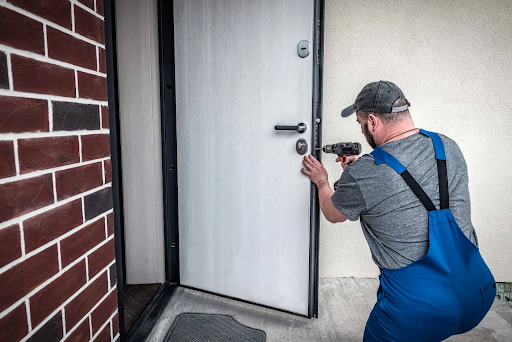Choosing the Right Entry Door: Factors to Consider Before Installation
When it comes to enhancing the curb appeal and security of your home, few features are as important as your entry door. An entry door not only serves as a barrier against the elements and intruders but also makes a significant statement about your home’s style. However, choosing the right entry door can be a daunting task, especially with the myriad of options available in the market. Here are several factors to consider before diving into the entry door installation process.
1. Material Matters
One of the primary decisions you’ll need to make when selecting an entry door is the material. The most common materials for entry doors include wood, steel, fiberglass, and aluminum.
- Wood Doors: Known for their natural beauty and warmth, wood doors can be customized in various styles and finishes. However, they require regular maintenance to prevent warping, cracking, and rotting.
- Steel Doors: These doors offer superior strength and security. They are energy-efficient and require minimal maintenance, though they can be prone to rust if not properly painted or treated.
- Fiberglass Doors: Fiberglass doors mimic the look of wood but offer better durability and energy efficiency. They resist denting, cracking, and warping, making them an excellent choice for homeowners seeking low-maintenance options.
- Aluminum Doors: Lightweight and resistant to corrosion, aluminum doors are durable and come in various styles. However, they may not provide as much insulation as other materials.
2. Style and Design
The style of your entry door should complement the architectural design of your home. Consider whether you prefer a traditional, modern, or rustic look. Key elements to evaluate include:
- Panel Configuration: Entry doors come with various panel designs, from flat to raised panels, adding texture and character.
- Glass Inserts: Adding glass can enhance natural light and visual appeal. Options range from clear to frosted or decorative glass.
- Color and Finish: The color of your door should harmonize with your home’s exterior. Bold colors can make a statement, while neutral tones often provide a classic look.
3. Energy Efficiency
Energy efficiency is a critical factor to consider when selecting your entry door. An energy-efficient door can help regulate your home’s temperature, reducing heating and cooling costs. Look for:
- Energy Star Certification: Doors with this certification meet strict energy efficiency guidelines.
- Insulation: The door’s core should have adequate insulation to minimize heat transfer. Steel and fiberglass doors typically provide better insulation than wood.
4. Security Features
Your entry door is the first line of defense against intruders, making security a top priority. Consider the following features:
- Locks: Invest in high-quality deadbolt locks and smart lock systems for enhanced security.
- Reinforced Frames: A door with a reinforced frame can withstand more force, making it harder to breach.
- Security Ratings: Look for doors that have been tested and rated for security to ensure you’re making a safe choice.
5. Cost Considerations
The cost of an entry door varies significantly based on material, design, and features. While it may be tempting to choose the cheapest option, consider the long-term benefits of investing in a quality door.
- Budgeting for Installation: Don’t forget to factor in the cost of professional installation, as proper installation is crucial for performance and security. Many door suppliers offer installation services, so check if this is included in your purchase.
6. Maintenance Requirements
Different materials require different levels of maintenance.
- Wood Doors: Expect to repaint or refinish every few years.
- Steel and Aluminum Doors: These typically require periodic checks for rust or dents but are easier to maintain.
- Fiberglass Doors: These are generally the least demanding in terms of maintenance.
Conclusion
Choosing the right entry door is a critical decision that impacts both the aesthetics and security of your home. By considering factors such as material, style, energy efficiency, security features, cost, and maintenance, you can make an informed choice that aligns with your needs and preferences. Don’t overlook the importance of selecting a reputable window and door supply company to assist you in this process. A reliable supplier can provide you with quality products, expert advice, and installation services, making your entry door installation a seamless experience.






